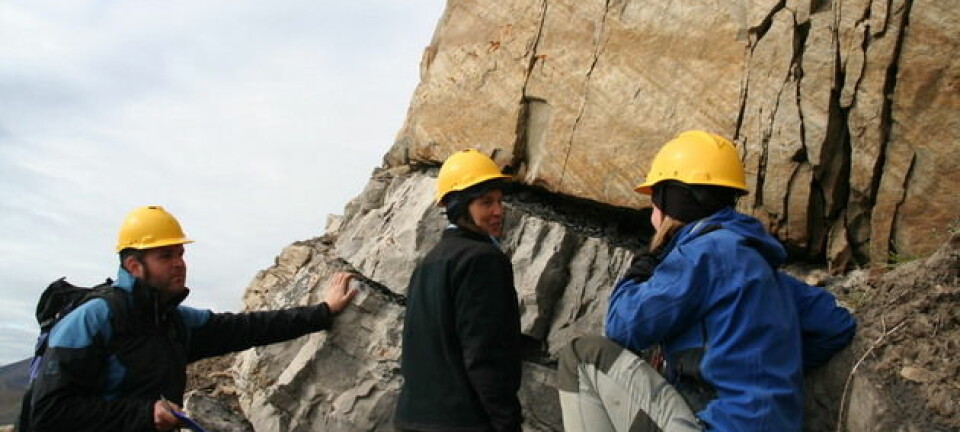
What is basic research?
What is basic research, and is it important? A new theme on ScienceNordic.
This article is part of our Basic Research theme
Basic research is often described as research without any clear goals, or science to satisfy the curiosity of a lone scientist without anyone else even realising that it exists.
But this totally misses the mark, says Søren-Peter Olesen, the director of the Danish National Research Foundation Centre for Cardiac Arrhythmia at the University of Copenhagen.
The goal of basic research is “to collect information about how nature and people are put together. It’s not important that this knowledge can be used for anything concrete, the most important thing is that we improve our understanding,” he says.
In the coming weeks, ScienceNordic is running a special theme on basic research. We will try to cover questions like: what is the point of basic research, who pays for it, who does it, and how does it benefit society?
You can bookmark the basic research theme homepage to stay up to date with the new articles on basic research here at ScienceNordic.
Basic research expands our knowledge and leads to innovation
Basic research or “blue skies research” is conducted just as any other scientific research: scientists have a hypothesis and test it by designing experiments and making observations to develop theories that explain how the world around us works.
“It’s important for humanity to understand the world in which we live,” says Olesen.
Basic research seeks answers to fundamental questions and provides broad insights to many different scientific fields. Applied research, on the other hand, tends to have a much narrower focus within a specific field.
“Basic research is incredibly important because it lays the ground for major discoveries,” says Poul Nissen, a centre director at the Centre for Membrane Pumps in Cells and Disease (PUMPkin) at Aarhus University, Denmark.
“When we use social media and electronic gadgets, and when we develop medicine to treat diseases--this is all possible because someone was doing basic research on it twenty or forty years earlier,” he says.
“Today’s discoveries are built on investments made in previous decades to fund basic research into the unknown challenges of the future,” says Nissen.
Blurred boundaries between applied and basic researching
Public debate usually tries to draw clear distinctions between basic research and applied research, so that they appear as almost polar opposites.
Applied research appears to have specific goals: a vaccine, a new windmill, or a new battery—concrete inventions that can improve our daily lives and lead to new products in the marketplace.
It may seem obvious that scientists should start with a strategic goal for a results-orientated project that can benefit society. But the reality is very different. The two types of research are closely intertwined and in reality it’s difficult to draw a strict boundary between them.
Take Nissen’s research, for example.
His research centre studies how so-called ion-pumps work in animal and plant cells. This may at first sound like a rather narrow research field, but over the past nine years, their research has led to developments in the treatment of fungal infections following cases of pneumonia, cancer treatments, as well as advances in the understanding of migraine, muscle diseases, and the important sodium-potassium pump mechanism in cells.
Basic research is also applied research
Nissen’s results have led to several spin-off companies and other results-orientated projects.
“All good basic research ends with new perspectives that can also have practical applications,” says Nissen. “All basic research projects lead to further projects. So it has a big effect on people’s daily lives.”
In that sense, basic research is no different to applied research, he says. “It just has a longer term perspective.”
Basic research is not defined by what scientists study, but how they do it
So if a scientist discovers a new mechanism that can potentially fight malaria, or if a scientists find a correlation between certain genes and our birth weight or certain diseases, is this basic or applied research?
But that is the wrong way to think about it, according to Olesen. It is not what you study, but how you study it, that defines whether or not your research is considered basic or applied, he says.
“Basic research is not defined by the expedition in itself, but by the goals you have,” says Olesen.
In other words, if a scientist studies malaria to improve our understanding of the disease, then that is basic research. But when that understanding seeks out new treatments, it becomes applied.
Can you conduct basic research in any subject?
So are any topics off limits when it comes to basic research? What about football, for example?
“That would be great!” says Olesen.
“Football is something that you can approach from many different angles: psychology, sports medicine, and by studying game theory and other mathematical techniques. So it can be extremely beneficial,” he says.
Olesen studies heart medicine and lectures on extreme sport and the changes that occur in the body when we take part in sport.
“There’s a lot to do, and often the breakthroughs come from research fields that are a bit off the beaten track, like football.”
Amateur scientists can also do basic research
So if there are no limits for what can be studied, are there any limits for who can do it or can anyone get involved in basic research?
“A lot of research is done outside universities,” says Olesen. “In industry, of course, but also by amateurs--amateur archaeologists for example.”
Nissen agrees.
“Research is driven by many things. Partly technical developments that make new discoveries possible and partly a need to recognise something. Sometimes it’s just luck when you come across something unexpected. Even amateurs can discover things that no one else had thought of before,” he says.
-------------
Read the Danish version of this article on Videnskab.dk
Translated by: Catherine Jex









